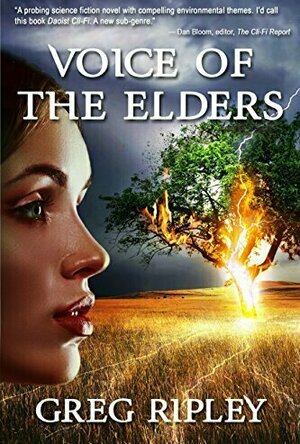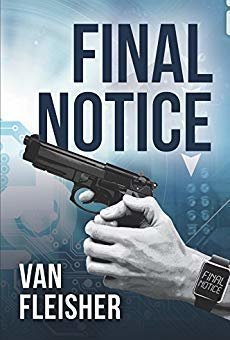Heather Cranmer (2721 KP) rated Passionaries (The Blessed, #2) in Books
Jun 7, 2018
I loved the first book in this series! Precious Blood was a fantastic read. However, Passionaries was a bit mediocre in my opinion.
I like the title, and I believe it is quite fitting for the book. A minor character in the book defines what passionaries are. They are some kind of books related to the Catholic religion. I don't know if that's fictitious or not (I did try searching for it and found nothing).
The cover is very gorgeous as are all of the covers of Tonya Hurley's books. The cover fits the book especially with the guitars and the sword.
The world building was a bit hit and miss. There were times when it seemed like something like this could happen. I mean, who says we can't have modern day saints? However, there were also times when it seemed a bit too unreal such as when people were getting murdered. For example, in one scene, the girls get attacked so they end up killing their attackers. They don't get arrested because there's no evidence. Surely they would've caught them on CCTV or someone would've seen the girls with blood all over them. Plus, there'd be so much forensic evidence. I also felt that sometimes there was sometimes some fight scenes just for the sake of having a fight scene.
The pacing started off slow but eventually find a decent pace. The pacing isn't as good as the first book in the series, but it still held my attention.
As for the plot, I don't really know what's going on. At least in the first book, it was the girls finding out they were saints. However, after reading this book, I don't know what's going on! I realize the girls are saints and there are some people that don't want the world to know that, but what I don't know is the why. Why do these people not want the world to know these girls are saints? I felt that the answer is just not very clear. Passionaries did have a plot twist that I never saw coming. There's also a big cliff hanger at the end of the story as to make way for the third book in the series.
The characters were all fabulously written. The girls are stronger in this book, and their saintly personalities show through. Saying that, Cecelia is more hardcore in this book then in the first one. At least I thought so. Dr. Frey is still very cunning as ever in Passionaries. One thing that did irk me was that Hurley brought in the character of Finn. To me, Finn is a totally pointless character. I really didn't see the relevance in bringing him into the story.
There were times when the dialogue did seem a bit awkward although this was mostly in the beginning of the book. I felt that the meeting between Dr. Frey and some of his associates at the beginning of the book had painful dialogue. It just didn't seem to flow naturally. Luckily, the problem is quickly solved. There is some swearing in Passionaries as well as graphic violence.
All in all, Passionaries fell short of my expectations. It was a little bit too confusing, and the world building just didn't seem all that realistic. I do want to read the next book in the series because I've invested so much time in this series. However, the expected publication is some time in 2015, so I may give it a miss since I tend to forget things that happened in books after so long.
I'd recommend this book to those aged 17+ who want to know more about Lucy, Cecelia, and Agnes.
Night Reader Reviews (683 KP) rated Voice of the Elders in Books
Jan 9, 2020
The book also mentions many aspects from different religions and cultures, along with their moral views. Christian theology is even mentioned in the same paragraph as the threefold version of the Golden Rule which many would attribute to the Pagans or more specifically the religion of Wicca. However, a lot of talk in the book revolves around Chinese Daoism and somewhat in-depth at that. This lost me at a few different places but not for long as the ideas were also explained fairly well. I believe the average reader should be able to at least the get gist of what is being said during the conversations.
The basic idea of the book is that the Earth is in major trouble. As humans, our greed and lack of concern for our environment is killing our planet as it is already too late to reverse these effects unless we do something big really quick. A meeting is being held at the United Nations to address these concerns and that is where the reader first meets the main character Rohini. It is also where the Elders are first introduced into the story. Without giving too much away to the interested reader I feel like I can safely say that the Elders tell the World Leaders about what can be done to save the Earth and propose a plan where the Earth will send ambassadors to the world of the Elders.
Rohini is chosen to be one of these ambassadors and is brought before the world on TV when all of those selected to be ambassadors are introduced. This is when trouble starts, those against the Elders and the sustainability programs launch their first direct attack and kill most of the ambassadors and the President forcing Rohini, her trainer Jane, and Jane’s friend Guangming into hiding as suspects while waiting for their names to be cleared.
Overall the book is very well written and I failed to find any major editorial flaws in it. Still, I rate this book to be 2 out of 4 stars. This is because while I loved seeing Rohini grow spiritually and increase her personal connection with the Earth I found the book lacking. The last five-chapter or so felt rushed like Greg Ripley got bored or wasn’t sure how to pull everything together. I guess more of what I am trying to say is with how amazingly detailed the rest of the book was the end felt haphazardly thrown together. Now if this were the first in a series I would change my rating to a 3 providing that a few things got explained better such as who exactly the “Others” are (not going to say anything more about them without risking a spoiler) and what happens with the Earth and the Elders.
Night Reader Reviews (683 KP) rated Final Notice: A Political Thriller in Books
Jan 9, 2020
A company creates a watch called the VT2 and it can monitor a person's health with surprising accuracy. It also has the capability of giving a person a Final Notice when it detect a change that will ultimately lead to death. At the same time the NRA started offering a discount to senior citizens to buy guns in order to defend themselves in their families. On top of these two events, many states are being pushed to have loser laws that will make it easier for people to get guns. These three factors together line up to create a series of horrible events.
The Final Notice feature was intended to give people a chance to get their affairs in order. However, for some once they get their notice they realize with having nothing to lose they can get revenge on people who have wronged them in the past. Some seniors lash out at others, specifically younger people who insulted them in some way. Other people go after political figures that they do not agree with. People who work for the company that created VT2 even joke about how if they knew they were going to die they had a list of people that they would try to take with them. The company ends up working with the FBI and a journalist to offset the negative impact of the VT2 and market it to the public in a positive light.
Many books did not include specifics about religion but that's one does. I found that to be a nice change as it made some of the characters feel more authentic. It also tackled some hard issues, not just the gun laws but also refugees and immigration focusing on those from Syria. With how anti-gun and anti-NRA this book is I was surprised at how casually other issues are mentioned. I would think topic such as underage drinking, fake IDs, and teen pregnancy would also be shown in a more negative light and not just as a passing memory. There were also a few attempt at humor towards the end of the book that just felt weird, in fact I am not even completely sure if it was supposed to be humor. The author says " the author feel sorry..." and " the author was tempted..." and as these are the only time this writing style is used it feels out of place. Morals are also called into question a three different times over the course of this book. It makes the reader question just because you can make money off of something and it is legal does that automatically make it alright?
The target readers for this book would be adult to our supporters of gun control. High school teachers might find this book interesting to teach with topics for group discussion by the students. Also people who are against the NRA in general would probably find this books topics to be enjoyable. After much the bay I have decided to give this book a 2 out of 4. Originally, I was only going to give the book a 1 but the concept of the watch is too interesting. Many chapters or paragraph felt repetitive of previous statements and I think that was largely what turned me away from this book.

ConceptIQ : Human Geography
Education and Games
App
Would you like to have fun, while testing your knowledge of Human Geography. Would you like to...

Empire magazine: movie news, interviews & reviews
Magazines & Newspapers
App
Looking for World-Class Movie Coverage? Empire on the iPad is a smorgasbord of A-list stars...

Bible Scholar Interactive
Reference and Games
App
Now just $2.99. The Bible Scholar named one of: "25 Incredible..Apps Every Theology Student...

Packing (+TO DO!)
Travel and Productivity
App
** THANKS EVERYONE FOR MAKING THIS #1 IN CANADA, #2 IN AUSTRALIA & #3 IN THE U.S.! ** ** Chosen by...

LDS Dating - Mutual Belief Singles Chat & Mingle
Dating, Lifestyle and Social Networking
App
Welcome to LDSmate - the most up to date and easy to use LDS dating app for people who want to chat...

Sugar Daddy Gay Dating For Sugar Daddy, Sugar Baby
Social Networking
App
GDaddy is the world’s FIRST and LARGEST gay dating app for gay sugar daddies, gay sugar babies. It...

Packing Pro
Travel and Productivity
App
** Featured in Apple's "10 Essentials," "Traveling Home" & "Staff Favorites" ** ** #1 Travel app in...


